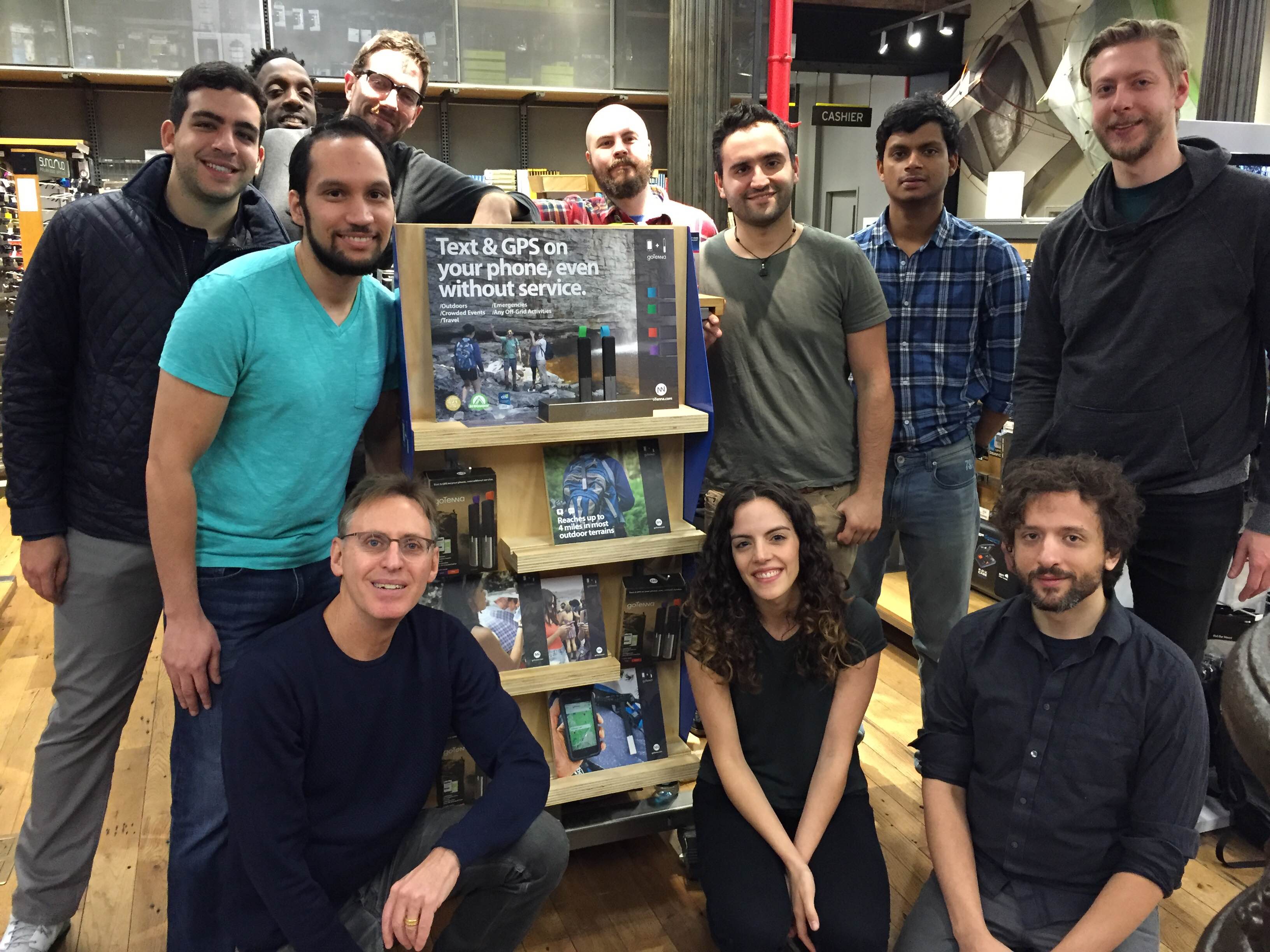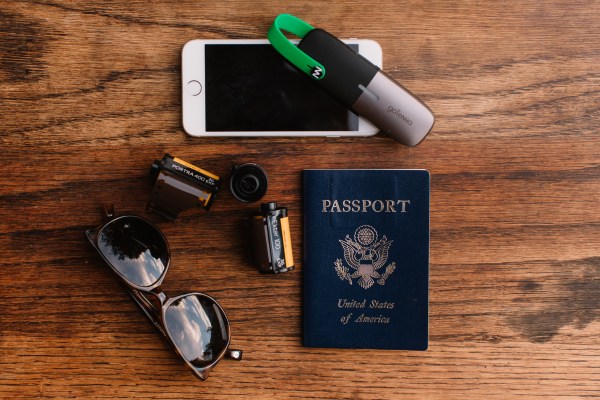Founded in 2012 with the small goal of enabling connectivity-free communication, goTenna has ballooned to more than 23 employees and delivered real hardware to market in the process. Today the startup is adding another $7.5 million to its coffers in the form of a Series B led by Union Square Ventures.
goTenna’s full suite of products effectively convert phones into walkie-talkies, allowing them to communicate with other local goTenna-equipped phones. The Brooklyn-based startup is targeting both consumers and enterprises, but the latter is where they are most poised to shine going forward. An alternative communications network is cool for a weekend expedition, but mission critical for governments and other emergency response teams.

Team goTenna at REI
With just $16.8 million in total financing, including today’s round, the startup has been able to develop three products: goTenna, goTenna Mesh and goTenna Pro. The first of these serves the aforementioned U.S. consumer population, while Mesh benefits both domestic and international users and Pro supports the public safety and enterprise communities. goTenna Mesh is set to ship late this spring, while the goTenna Pro suite will ship later in the fall/winter.
Though goTenna is a hardware startup at heart, it has been making efforts to diversify its revenue stream. Last fall, it launched its services-based business called goTenna Plus. That service unlocks offline mapping, read receipts and location tracking, among other things.
Beyond services, goTenna will also need to execute in international markets. In a phone interview, CEO Daniela Perdomo told me that operating at-scale internationally will mean building out its supply chain without sacrificing responsiveness.
“We have been in R&D mode for a long time,” Perdomo says. “We sold millions of dollars’ worth of product organically and we continue to be an R&D organization.”
Perdomo, who doesn’t enjoy fundraising, took a fairly traditional approach to it — aiming to raise 50 percent more money than she thought the company needed for the next 18 to 24 months. Perdomo was also quick to highlight her belief that the startup is on a clear path to being self-sustaining.
Today’s Series B also included participation from existing goTenna investors, including Walden Venture Capital, MentorTech Ventures, Bloomberg Beta, BBG Ventures and Collaborative Fund.
